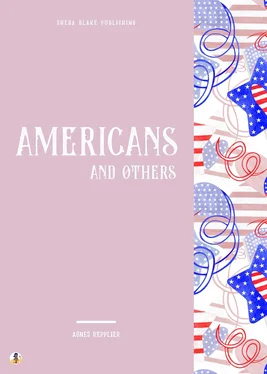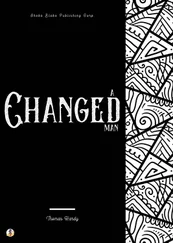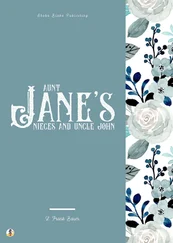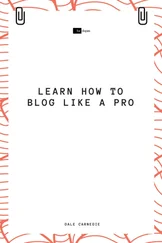Sheba Blake - Americans and Others
Здесь есть возможность читать онлайн «Sheba Blake - Americans and Others» — ознакомительный отрывок электронной книги совершенно бесплатно, а после прочтения отрывка купить полную версию. В некоторых случаях можно слушать аудио, скачать через торрент в формате fb2 и присутствует краткое содержание. Жанр: unrecognised, на английском языке. Описание произведения, (предисловие) а так же отзывы посетителей доступны на портале библиотеки ЛибКат.
- Название:Americans and Others
- Автор:
- Жанр:
- Год:неизвестен
- ISBN:нет данных
- Рейтинг книги:5 / 5. Голосов: 1
-
Избранное:Добавить в избранное
- Отзывы:
-
Ваша оценка:
- 100
- 1
- 2
- 3
- 4
- 5
Americans and Others: краткое содержание, описание и аннотация
Предлагаем к чтению аннотацию, описание, краткое содержание или предисловие (зависит от того, что написал сам автор книги «Americans and Others»). Если вы не нашли необходимую информацию о книге — напишите в комментариях, мы постараемся отыскать её.
Americans and Others — читать онлайн ознакомительный отрывок
Ниже представлен текст книги, разбитый по страницам. Система сохранения места последней прочитанной страницы, позволяет с удобством читать онлайн бесплатно книгу «Americans and Others», без необходимости каждый раз заново искать на чём Вы остановились. Поставьте закладку, и сможете в любой момент перейти на страницу, на которой закончили чтение.
Интервал:
Закладка:
* * *
The Mission of Humour
“Laughter is my object: ‘tis a property In man, essential to his reason.” THOMAS RANDOLPH, _The Muses’ Looking-Glass_.
American humour is the pride of American hearts. It is held to be our splendid national characteristic, which we flaunt in the faces of other nations, conceiving them to have been less favoured by Providence. Just as the most effective way to disparage an author or an acquaintance—and we have often occasion to disparage both—is to say that he lacks a sense of humour, so the most effective criticism we can pass upon a nation is to deny it this valuable quality. American critics have written the most charming things about the keenness of American speech, the breadth and insight of American drollery, the electric current in American veins; and we, reading these pleasant felicitations, are wont to thank God with greater fervour than the occasion demands that we are more merry and wise than our neighbours. Mr. Brander Matthews, for example, has told us that there are newspaper writers in New York who have cultivated a wit, “not unlike Voltaire’s.” He mistrusts this wit because he finds it “corroding and disintegrating”; but he makes the comparison with that casual assurance which is a feature of American criticism.
Indeed, our delight in our own humour has tempted us to overrate both its literary value and its corrective qualities. We are never so apt to lose our sense of proportion as when we consider those beloved writers whom we hold to be humourists because they have made us laugh. It may be conceded that, as a people, we have an abiding and somewhat disquieting sense of fun. We are nimble of speech, we are more prone to levity than to seriousness, we are able to recognize a vital truth when it is presented to us under the familiar aspect of a jest, and we habitually allow ourselves certain forms of exaggeration, accepting, perhaps unconsciously, Hazlitt’s verdict: “Lying is a species of wit, and shows spirit and invention.” It is true also that no adequate provision is made in this country for the defective but valuable class without humour, which in England is exceedingly well cared for. American letters, American journalism, and American speech are so coloured by pleasantries, so accentuated by ridicule, that the silent and stodgy men, who are apt to represent a nation’s real strength, hardly know where to turn for a little saving dulness. A deep vein of irony runs through every grade of society, making it possible for us to laugh at our own bitter discomfiture, and to scoff with startling distinctness at the evils which we passively permit. Just as the French monarchy under Louis the Fourteenth was wittily defined as despotism tempered by epigram, so the United States have been described as a free republic fettered by jokes, and the taunt conveys a half-truth which it is worth our while to consider.
Now there are many who affirm that the humourist’s point of view is, on the whole, the fairest from which the world can be judged. It is equally remote from the misleading side-lights of the pessimist and from the wilful blindness of the optimist. It sees things with uncompromising clearness, but it judges of them with tolerance and good temper. Moreover, a sense of the ridiculous is a sound preservative of social virtues. It places a proper emphasis on the judgments of our associates, it saves us from pitfalls of vanity and self-assurance, it lays the basis of that propriety and decorum of conduct upon which is founded the charm of intercourse among equals. And what it does for us individually, it does for us collectively. Our national apprehension of a jest fosters whatever grace of modesty we have to show. We dare not inflate ourselves as superbly as we should like to do, because our genial countrymen stand ever ready to prick us into sudden collapse. “It is the laugh we enjoy at our own expense which betrays us to the rest of the world.”
Perhaps we laugh too readily. Perhaps we are sometimes amused when we ought to be angry. Perhaps we jest when it is our plain duty to reform. Here lies the danger of our national light-mindedness,—for it is seldom light-heartedness; we are no whit more light-hearted than our neighbours. A carping English critic has declared that American humour consists in speaking of hideous things with levity; and while so harsh a charge is necessarily unjust, it makes clear one abiding difference between the nations. An Englishman never laughs—except officially in “Punch”—over any form of political degradation. He is not in the least amused by jobbery, by bad service, by broken pledges. The seamy side of civilized life is not to him a subject for sympathetic mirth. He can pity the stupidity which does not perceive that it is cheated and betrayed; but penetration allied to indifference awakens his wondering contempt. “If you think it amusing to be imposed on,” an Englishwoman once said to me, “you need never be at a loss for a joke.”
In good truth, we know what a man is like by the things he finds laughable, we gauge both his understanding and his culture by his sense of the becoming and of the absurd. If the capacity for laughter be one of the things which separates men from brutes, the quality of laughter draws a sharp dividing-line between the trained intelligence and the vacant mind. The humour of a race interprets the character of a race, and the mental condition of which laughter is the expression is something which it behooves the student of human nature and the student of national traits to understand very clearly.
Now our American humour is, on the whole, good-tempered and decent. It is scandalously irreverent (reverence is a quality which seems to have been left out of our composition); but it has neither the pitilessness of the Latin, nor the grossness of the Teuton jest. As Mr. Gilbert said of Sir Beerbohm Tree’s “Hamlet,” it is funny without being coarse. We have at our best the art of being amusing in an agreeable, almost an amiable, fashion; but then we have also the rare good fortune to be very easily amused. Think of the current jokes provided for our entertainment week by week, and day by day. Think of the comic supplement of our Sunday newspapers, designed for the refreshment of the feeble-minded, and calculated to blight the spirits of any ordinarily intelligent household. Think of the debilitated jests and stories which a time-honoured custom inserts at the back of some of our magazines. It seems to be the custom of happy American parents to report to editors the infantile prattle of their engaging little children, and the editors print it for the benefit of those who escape the infliction firsthand. There is a story, pleasant but piteous, of Voltaire’s listening with what patience he could muster to a comedy which was being interpreted by its author. At a certain point the dramatist read, “At this the Chevalier laughed”; whereupon Voltaire murmured enviously, “How fortunate the Chevalier was!” I think of that story whenever I am struck afresh by the ease with which we are moved to mirth.
A painstaking German student, who has traced the history of humour back to its earliest foundations, is of the opinion that there are eleven original jokes known to the world, or rather that there are eleven original and basic situations which have given birth to the world’s jokes; and that all the pleasantries with which we are daily entertained are variations of these eleven originals, traceable directly or indirectly to the same sources. There are times when we are disposed to think eleven too generous a computation, and there are less weary moments in which the inexhaustible supply of situations still suggests fresh possibilities of laughter. Granted that the ever fertile mother-in-law jest and the one about the talkative barber were venerable in the days of Plutarch; there are others more securely and more deservedly rooted in public esteem which are, by comparison, new. Christianity, for example, must be held responsible for the missionary and cannibal joke, of which we have grown weary unto death; but which nevertheless possesses astonishing vitality, and exhibits remarkable breadth of treatment. Sydney Smith did not disdain to honour it with a joyous and unclerical quatrain; and the agreeable author of “Rab and his Friends” has told us the story of his fragile little schoolmate whose mother had destined him for a missionary, “though goodness knows there wasn’t enough of him to go around among many heathen.”
Читать дальшеИнтервал:
Закладка:
Похожие книги на «Americans and Others»
Представляем Вашему вниманию похожие книги на «Americans and Others» списком для выбора. Мы отобрали схожую по названию и смыслу литературу в надежде предоставить читателям больше вариантов отыскать новые, интересные, ещё непрочитанные произведения.
Обсуждение, отзывы о книге «Americans and Others» и просто собственные мнения читателей. Оставьте ваши комментарии, напишите, что Вы думаете о произведении, его смысле или главных героях. Укажите что конкретно понравилось, а что нет, и почему Вы так считаете.












